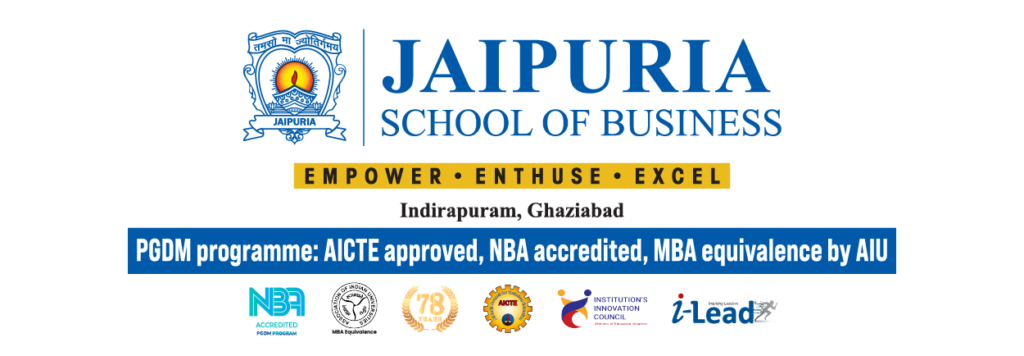Introduction:
The role of an Operations Manager is evolving rapidly, especially with the increasing integration of technology, data-driven decision-making, and globalization. In 2025, successful operations managers must possess a unique blend of technical expertise, interpersonal skills, and strategic vision to excel in their roles. At JSB, the pgdm college in delhi ncr where premier institutions offering specialized programs in operations management are instrumental in nurturing these skills, enabling professionals to meet the challenges of a dynamic business environment.
1. Leadership and People Management
An operations manager’s role often involves leading teams, fostering collaboration, and maintaining motivation among employees. Effective leadership includes:
- Building trust and rapport with team members.
- Setting clear goals and expectations.
- Providing constructive feedback and guidance.
The ability to inspire and lead diverse teams is critical for managing complex operations in industries like hospitality, where companies such as Taj Hotels demand exceptional leadership for seamless customer experiences.
2. Analytical Thinking and Problem-Solving
With data becoming the backbone of operations, managers need to have sharp analytical skills to:
- Interpret data and identify trends.
- Solve problems with innovative solutions.
- Optimize processes for efficiency.
Tools like Six Sigma and Lean Management are widely taught in top management programs, enabling graduates to excel in data-driven industries such as Asian Paints and Pidilite, where operational efficiency is paramount.
3. Financial Acumen
Understanding the financial implications of operational decisions is vital. An operations manager must:
- Create and manage budgets.
- Evaluate cost-saving opportunities.
- Analyze return on investment (ROI) for operational strategies.
These skills are particularly relevant in finance-intensive sectors like ICICI Prudential and Blackstone, where decision-making has direct financial impacts.
4. Technological Proficiency
As operations become more tech-driven, managers need to be proficient in:
- Enterprise Resource Planning (ERP) systems.
- Supply chain management tools.
- Data analytics platforms.
Technological adaptability ensures smooth operations in tech-savvy organizations like Reliance Industries Limited and Savex Technologies, where automation and innovation are key drivers of success.
5. Communication and Interpersonal Skills
Clear and concise communication is a cornerstone of effective operations management. Managers must:
- Communicate goals and expectations to teams.
- Collaborate with cross-functional departments.
- Negotiate with vendors and stakeholders.
The ability to articulate ideas effectively is highly valued in customer-centric industries like MakeMyTrip and Bandhan Bank, where relationships with clients and partners are crucial.
6. Strategic Thinking and Decision-Making
In 2025, operations managers must align operational goals with organizational objectives. Strategic thinking involves:
- Long-term planning.
- Prioritizing projects based on organizational goals.
- Adapting strategies to market changes.
Top management programs emphasize strategy through real-world case studies, preparing professionals to lead in industries like Niva Health Insurance, where market dynamics are constantly evolving.
7. Emotional Intelligence (EI)
Managing people effectively requires high emotional intelligence. This includes:
- Empathy and understanding.
- Conflict resolution skills.
- Building positive workplace cultures.
Organizations like Taj Hotels and Pidilite value managers who can foster inclusive and productive work environments.
8. Supply Chain Management Expertise
In a globalized world, managing supply chains efficiently is critical. Skills in this domain include:
- Vendor management.
- Inventory optimization.
- Logistics and distribution planning.
Companies such as Asian Paints and Reliance Industries Limited thrive on robust supply chain strategies.
9. Adaptability and Resilience
The modern business environment is unpredictable. Operations managers must:
- Adapt quickly to changing circumstances.
- Stay resilient under pressure.
- Lead teams through uncertainty.
This skill is particularly valuable in dynamic industries like travel and tourism, where companies like MakeMyTrip operate in fluctuating market conditions.
10. Ethical and Sustainable Practices
Sustainability and ethics are becoming non-negotiable in operations management. Managers must:
- Implement eco-friendly processes.
- Ensure compliance with regulations.
- Foster ethical practices in operations.
Organizations like Blackstone and Savex Technologies prioritize sustainability as part of their operational strategy.
Learning Through Global and Industry Exposure
Institutions offering operations management programs often include initiatives that enrich learning through:
- International Talk Series: Featuring experts like Dr. Hiram Ting, these talks provide global insights and trends in operations management.
- Practitioner Sessions: Engaging industry professionals, such as Yogacharya Ankit Garg, these sessions focus on practical skills and real-world challenges.
- AIMA BizLab Inauguration: Events like the inauguration by Mr. Ravi Jangra and Mr. Neeraj Kapoor expose students to cutting-edge business practices.
The Path Ahead for Aspiring Operations Managers
As the role of operations managers continues to expand, professionals must embrace lifelong learning and skill development. Institutions play a pivotal role in:
- Offering courses that blend technical and managerial skills.
- Providing exposure to diverse industries.
- Facilitating networking through alumni and industry events.
Conclusion
The landscape of operations management is more dynamic than ever, and the skills required to excel in this field are continually evolving. At JSB, the pgdm college in delhi ncr where by mastering key skills like leadership, analytical thinking, technological proficiency, and emotional intelligence, operations managers can drive efficiency, innovation, and growth in their organizations.
With strong support from academic institutions and industry partnerships, aspiring professionals are well-equipped to tackle the challenges of 2025 and beyond, making a meaningful impact across sectors like hospitality, finance, manufacturing, and technology.

